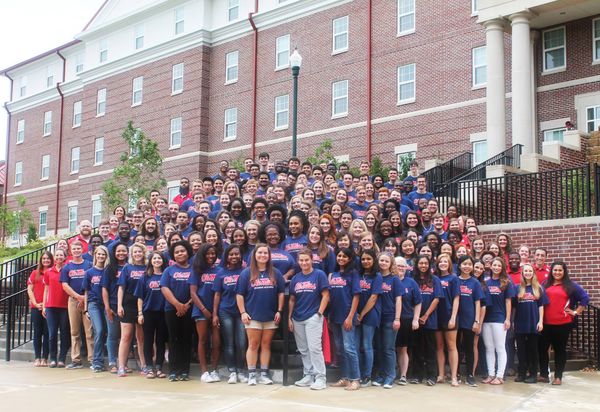About two weeks ago, Texas journalist Alexis Bloomer posted a video on her Facebook wall, and feelings were unsurprisingly hurt.
"Dear Elders, I'm Sorry. Sincerely, a Millennial." : https://www.facebook.com/AlexisBloomerTV/videos
Recommended for you
I applaud this woman for calling out her own generation, even if she opened up the doors to criticism. I think she and I both actually enjoy seeing poorly thought out "response" videos and articles such as these listed.
Youtuber "Derek Brown's" Mockery: https://www.youtube.com/watch?v=7a2wAumZjPM
"The Young Turks" poorly thought out response: https://www.youtube.com/watch?v=z_-x7wIonVM
Equally poorly developed argument article: http://fusion.net/story/295472/alexis-bloomer-face...
These videos and article represent a pitiful attack on Bloomer, for no purpose other than "it made them mad". And how "millennial" is that?
(See the degradation of Emotional Resilience: https://www.psychologytoday.com/blog/freedom-learn...)
I could easily go through and destroy every argument made against Bloomer, but anyone with common sense can do so just as easily. Alexis Bloomer is in no way a hypocrite, and she is right.
Notice how Bloomer discusses not economic issues like some responses imagine so, but issues of character. It's attitude that millennials have, and this attitude is so prevalent in society: social media, television, advertisements, friends, classmates... this attitude is everywhere. Disrespect, total indifference, apathy, entitlement; these are the vices that are causing not just our country to divide, but the very relationships that we have with others to disintegrate.
My response is not of anger, but of inquiry: did Bloomer's video actually change anything? 43 million viewers later, did it make a difference in anyone's perspective? Probably not.
And that's why I have lost faith in this generation.
There is nothing I can do to change people's minds. I can be a moral sovereign, but to influence people's lifestyle for the better is something no one can expect to do. I can be the example, which admittedly is difficult when people don't understand why I don't cuss, or why I don't listen to obscene music, or why people's lack of respect anger me. Helplessness is the worst debilitation when it comes to war. People themselves have to define what is moral, and seeing so many good people adopt such a narrow interpretation is frustrating. Calling them out for it only incites the usage of "bigot".
No one can perfectly define morality. None of us has a grasp of what is truly right and what is truly wrong. Some define morality by faith, by personal experience, or pure intuition. And so here is the gray area we like to argue over. But a recent development has been the single most cause for the death of morality, and it has been so widely embraced by the millennial generation that it's instinctive for us to be indifferent.
Indifference. My generation is indifferent to what is wrong and what is right. This claim I can only support through the issues of our nation and my own disappointing personal experiences. But when much more than half of the nation is taking antidepressants, there’s something wrong with our attitude. And the millennial attitude is what Alexia Bloomer is attacking. Of course, not every millennial carries the millennial attitude. But there is definitely truth to the stereotype, at least to me.
I constantly see a battle between good and evil and it seems something sinister has infiltrated the hearts of my generation, portrayed by the words and the actions of my friends, classmates, and society. There is so much innocence and beauty to this world, but none of it is safe from the perversion of man. And my claim is easily laughable by those who embrace such a lifestyle. Where nothing is wrong, where we take limited responsibility for actions, and where we don't question the morality because most of us don't live in the dualistic perspective I present these issues in. In my eyes, I see a one-sided war waged against innocents who cannot see the enemies they succumb to.
We are just as blind to this degrading society of hedonism and self-importance, and I don’t expect this article to magically cure our vision. But how can authors of articles like “Why This Millennial Has Hope for Our Generation” really have hope? To have a moral code and to be unafraid to abide by it is like being a puzzle piece thrown in the wrong box. Moral people don't fit in the picture that a hedonistic society creates.
We’re all young, and we all have room for mistakes. But our own indifference is recognizing mistakes as privilege and wrong as right. I see no guilt in my generation for the perverted ideologies that we allow ourselves to become. Garbage in, garbage out. We speak, hear, and live in immoral standard. And without guilt we become our circumstances. And those with the rare bravery to acknowledge what is right are outcast. The millennial generation will be the death of morality.
And I can do is write a useless article about it.


















